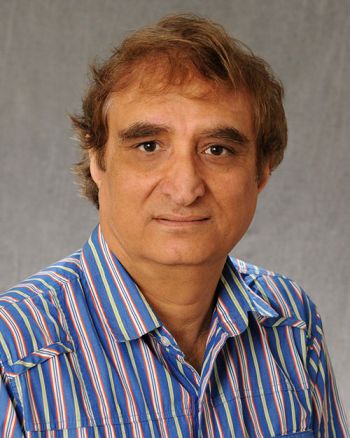
WASHINGTON (Aug. 1, 2016) — New research critical to treatment for chronic toxoplasmosis, one of the most common parasitic diseases worldwide, was published in the Journal of Experimental Medicine. Researchers from the George Washington University (GW) uncovered a connection between CD8 T-cell exhaustion and CD4 T-cell exhaustion, not found before. They also discovered that CD4 T-cells can be regulated by Blimp-1 protein expression. Through regulating CD4 T-cells, CD8 T-cells can be regulated, which could lead to new therapeutic possibilities.
Toxoplasmosis is typically asymptomatic but has dangerous consequences for the immuno-suppressed and women who are pregnant. This disease is especially prevalent in HIV/AIDS populations.
“Previous research considered CD8 but not CD4 T cells to be critical in chronic toxoplasmosis control,” said Imtiaz Khan, Ph.D., whose laboratory conducted this study, and professor of microbiology, immunology, and tropical medicine at the GW School of Medicine and Health Sciences. “Our research found that not only does CD4 also become exhausted during chronic toxoplasmosis, as a result of the depleted immune system, but this dysfunction is more pronounced than in CD8 T-cells. We also found CD4 exhaustion levels in contact with Blimp-1 have reduced functionality.”
The data demonstrates, for the first time, that Blimp-1 is a critical regulator for CD4 T-cell exhaustion. Additionally, regulating CD4 T-cell exhaustion reverses CD8 T-cell dysfunction, resulting in improved pathogen control. This opens up new therapeutic possibilities for the millions of people experiencing chronic toxoplasmosis in developing countries and in HIV/AIDS populations. It also has important implications for cancer research.
“CD8 T-cells are also very important for protecting cancer patients,” said Khan. “This research has the potential to change strategies for therapeutics against cancer. It informs ways to target CD8 T-cells, prevent CD8 T-cell exhaustion, bolster a patient’s immune system, and ultimately, kill tumors.”
“Blimp-1 mediated CD4 T cell exhaustion causes CD8 T cell dysfunction during chronic Toxoplasmosis,” was published in the Journal of Experimental Medicine.
This research was funded by the National Institutes for Health.


